The following is an excerpt from the book Reports From Hell, a gonzo ride through the Middle East with Chas Smith, the award-winning author of Welcome to Paradise, Now Go To Hell. In this chapter, our fearless correspondent arrives in Yemen in 2003, looking to answer the one question literally no surfer had ever asked: Were there any waves in Osama Bin Laden’s ancestral home?
We treat al-Mukullah over the next ten days the way sloppy Germans, Danes, and Poles treat Mallorca, ambling around in the heat of the day between shops that sell ice-cream and internet cafés, driving out to the wave for a surf, driving back for a massive chicken lunch, driving out to the wave for an evening surf, driving back for a dinner of fried fish balls and banana mush next to the mosque.
Major Ghamdan mostly stayed in his room as far as I could tell and seemed resigned to whatever would happen, throwing up his hands and letting God decide our fate, really and truly getting into the “inshahallah” spirit the way all good Muslims and Calvinists do.
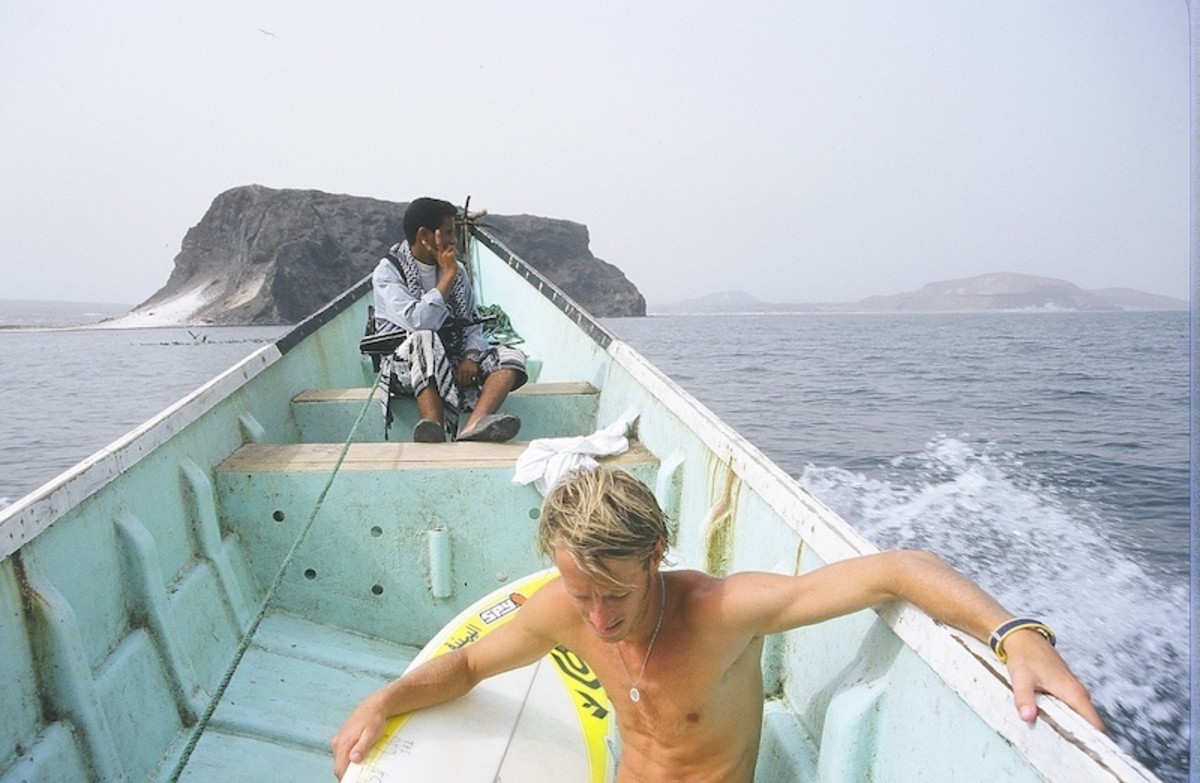
Irate younger men would approach semi-regularly, especially after evening prayers, eyes burning, and tell us that George Bush is a dog. Yemen was severely punished by George Sr. for holding the position that Arab nations should not intervene in the business between Iraq and Kuwait during the first Gulf War and even more severely punished by Kuwait and her neighbors as thousands of working Yemenis were expelled without warning.
George Jr. had just taken Baghdad in the second Gulf War not two months ago as the Global War on Terror found a new theater and was saber rattling through the rest of the region, demanding that nations were either for us or against us, and if they were against us—well, things would not go well.
Depending on our collective mood we would either argue back that the Bush family was a proud American legacy or agree and either way the conversations would end with warm proclamations of friendship and hand-holding beneath the starry skies of Mukullah, a striking town that grows better with experience.
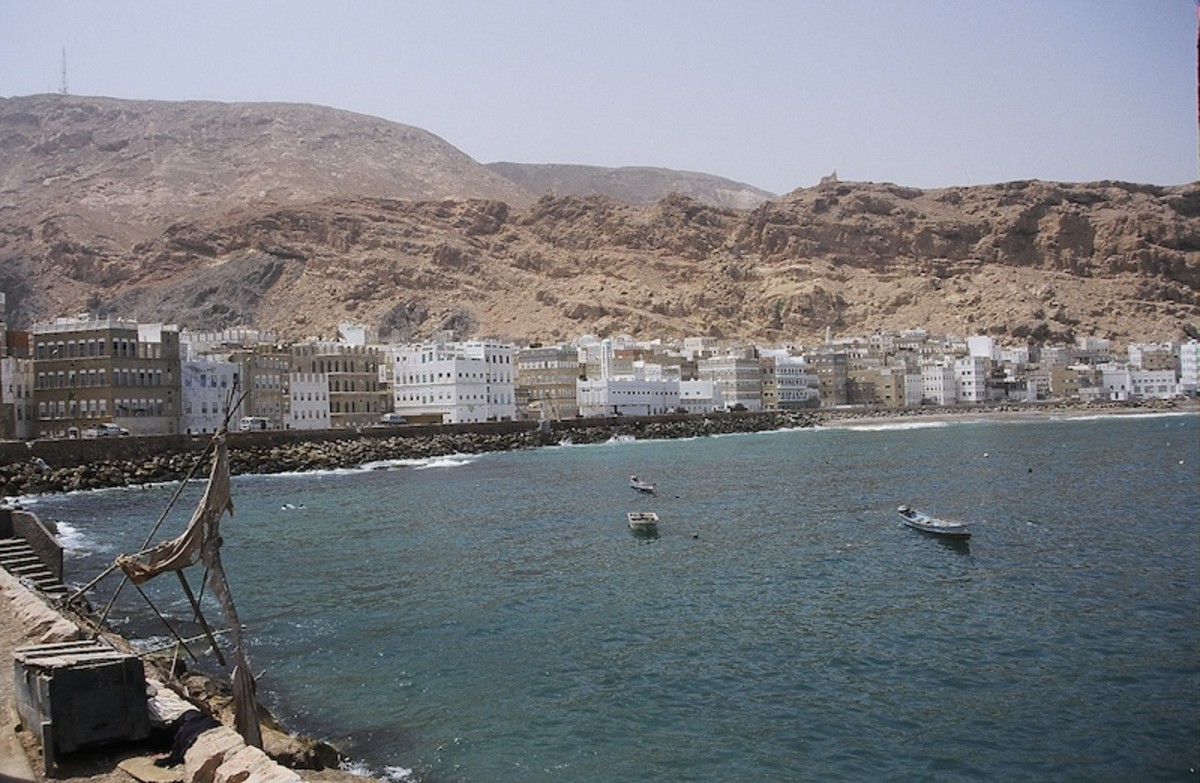
The way the light bathes it in the day, the way heat radiates off every surface at night. The mix of Indian, British, Persian, Indonesian, and East African influences. Architecture, food, and dress harkening to the days when it was a center of the trading world. Osama bin Laden’s family chose their region well, and my desire to live in the Hadramawt grew unchecked.
Most nights belonged to music videos or accidentally CNN’s international version. The Horse did indeed have televisions and not one but two music video channels from Saudi Arabia and from Lebanon, which worked brilliantly when one switched to Live from Mecca programming unless they both switched to it at the same time. It blew my expectations out of the water, and even though Josh would semi-regularly reference how epic the hotel by the mosque was and how it was also closer to fried fish balls, we all feasted on Stone Temple Pilots, Ricky Martin, Alicia Keys, Incubus, Uncle Cracker, Nelly Furtado, and Enrique Iglesias with equal relish—especially the Enrique Iglesias video featuring Jennifer Love Hewitt and Mickey Rourke in an epic ballad that brought me near tears every time it played, particularly when Enrique Iglesias looked deep into Jennifer Love Hewitt’s eyes and said, “I can be your hero, baby. I can kiss away the pain.”
And then we’d go eat.
One evening, as we traipsed back to our hotel from fried fish balls, a group of young men followed us into a small, empty corridor and unsheathed their jambiyas, flashing the curved steel and yelling that we were Americans. Josh lowered his shoulder and ran at them like a corn-fed University of Michigan fullback. They tossed them into a nearby bush and took off sprinting, and the whole scene felt wonderful, harkening back to a simpler, less litigious time when back-alley street fights between rival hoods were commonplace.
“When you’re a jet you’re a jet all the way!” I shouted as they rounded the corner, Josh hot on their wedge-sandaled heels.
Another evening as we sauntered back we saw a massive crowd out front the shopfront where we bought our morning coffees. A sea of turbaned heads sitting cross-legged on a piece of Astroturf rolled out for the occasion. As we got nearer we saw they were all watching a tiny rabbit-earred television, and as we got nearer still saw the television was showing a pro surf contest from Hawaii the year earlier.
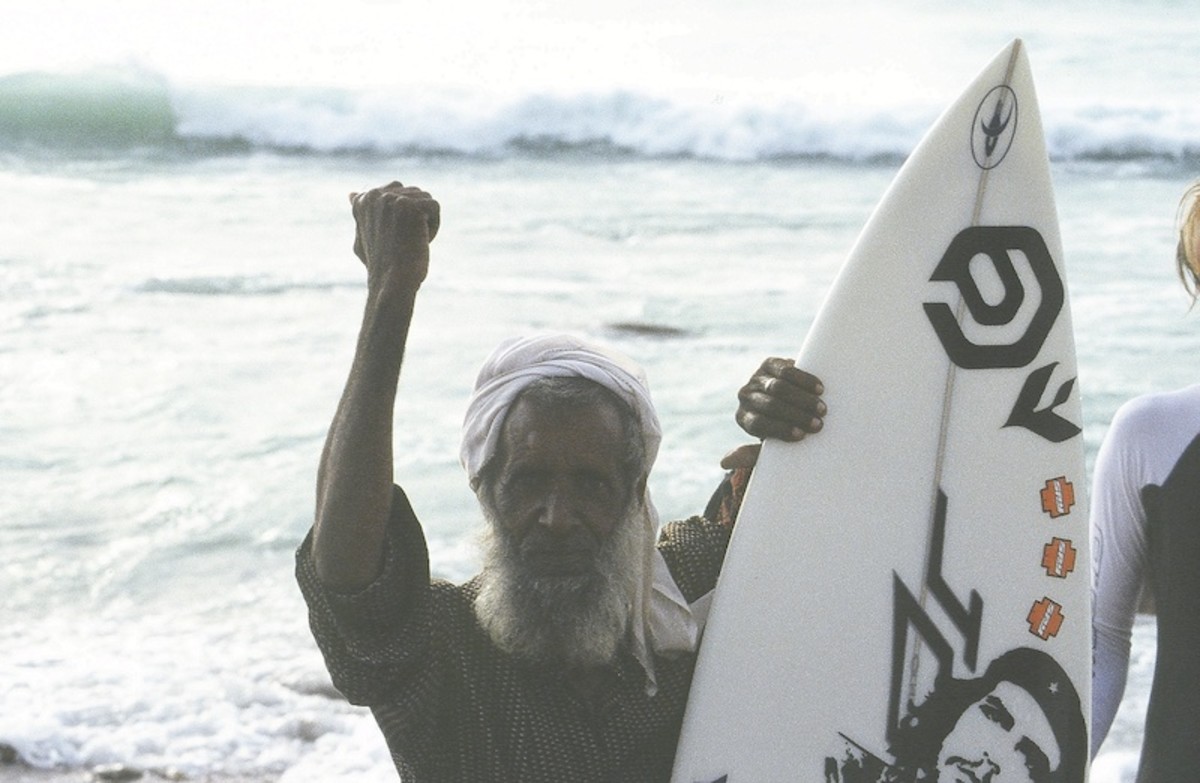
I couldn’t believe it. Here in al-Mukallah—a thousand miles from the nearest semblance of surf culture and ten thousand miles from Oahu’s North Shore—a few hundred men were silently basking in the Pastime of Kings. I elbowed one wearing a particularly neat turban-skirt combination, pointed at the television, and told him that’s what we did, what those men were doing on the television, riding tables on the ocean exactly like them. His eyes widened and I almost invited him to watch us live the next day but thankfully caught myself, realizing that while we indeed rode tables on the ocean exactly like the men on television, our surfing looked very different. So different, in fact, that it might have been confused as a separate water game altogether. One not so graceful or exciting. Still, the entire scene was so gorgeously surreal it made me positively giddy for days afterward.
And then, one hot morning, it is time to move on.
We have been in the country for just over a month, have experienced the highlands with gorgeously terraced qat plantations, mist-shrouded crags, gingerbread houses, deep valleys, quaint towns, and bustling cities. And also the guns, skirts, ninjas, banana milk, and rotisserie chicken, of course.
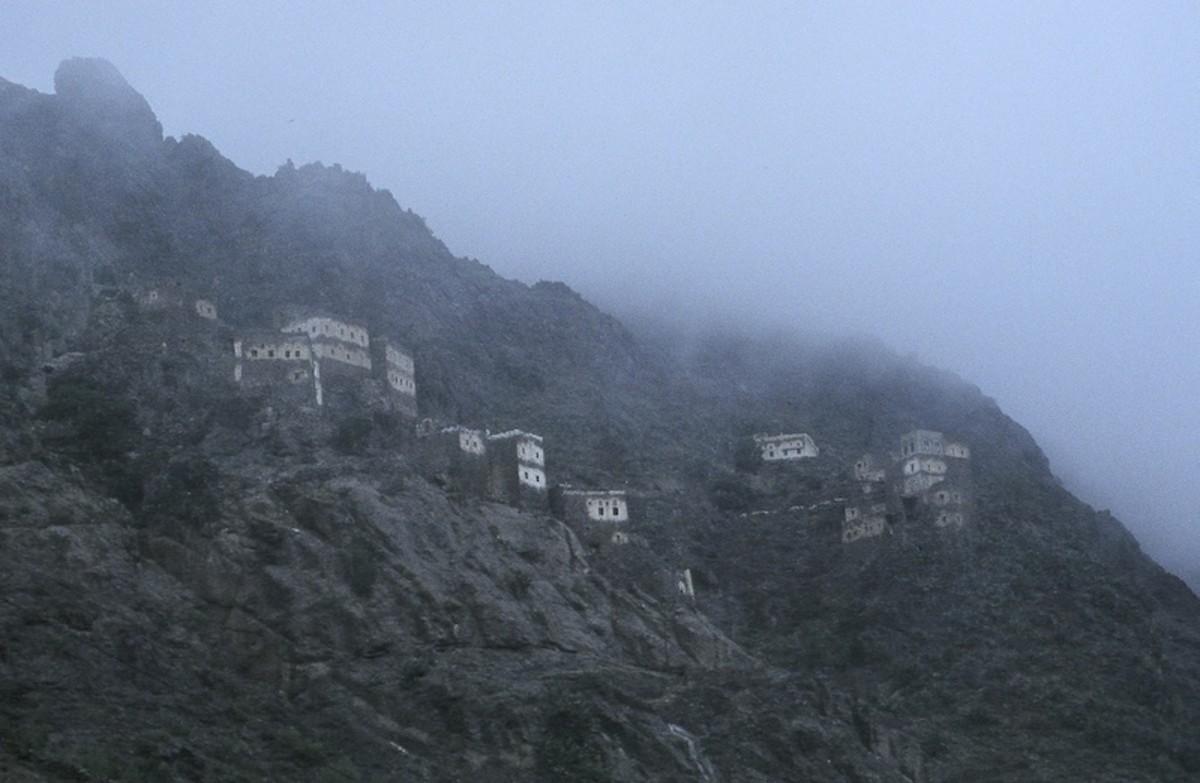
Ahead is the lightly tamed hinterland. The paved portion of our journey will conclude in a hundred or so kilometers and we’ll be alone in a mountainous coastal desert or maybe a rain forest. Josh had said the monsoonal flow hits the coast where Yemen touches Oman, but it is difficult for me to believe him. Even if I stretch my imagination all the way out I can picture neither rain nor forest. We are in dry lands, and wild, untamed dry lands await. Dry lands that even the heartiest Yemeni has never seen. That nobody has ever seen.
We buy qat from Mukullah’s qat souq before leaving, and though it’s early, it also guarantees the quality of our purchase. Cole had already been a sommelier before we arrived, but a sommelier unburdened by price. It took a hot minute, but we figured out the game, and it serves us now. We begin chewing as Major Ghamdan points the Landcruiser northeast and continue chewing through an almost fun wave we discovered right past an oil facility thirty kilometers past al-Mukala owned by a Canada-based firm. We surf for an hour, cheeks filled with qat, at an almost very fun beach break we dub “Oh, Canada” afterward. Naming each break we discover is very important in the moment, not that any other surfer on Earth will ever follow. Still, very important. When watching a movie about Everest or Half Dome or whatever, the nomenclatures are set to memory. I know the “Hillary Step” without having climbed a day in my life. I know “Monster Offwidth” thanks to the mad man Alex Honnold. Names mean something even when they don’t.
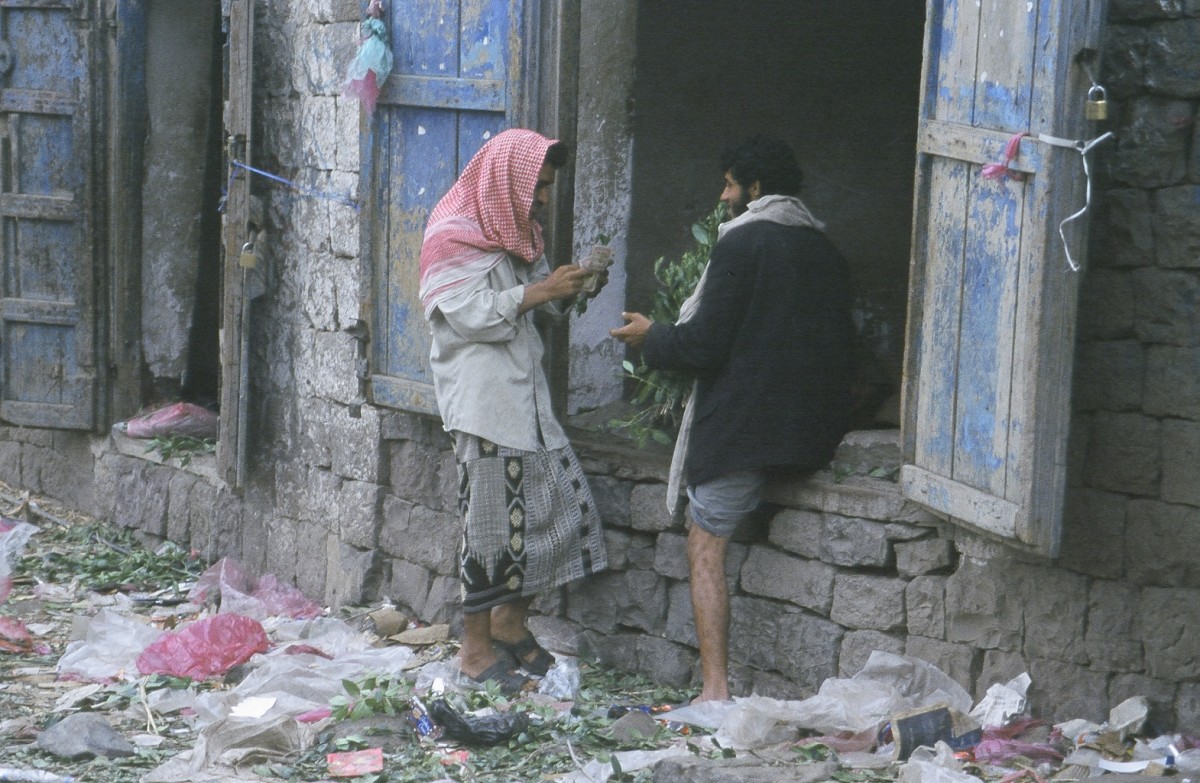
We have the honor and privilege of naming every break we surf, since we are the first to surf them, and I dutifully scribble their names in my notebook, gazing at it with pride as the list grows longer. After “Oh, Canada” I draw a maple leaf. Cole leans, studying my work, and says, “I like weed too.”
“How much for a Cheech and Chong meatsa-meatsa?” I ask him. “Oooooh, a total ten.” “Gross, Cole,” Josh says without looking back. And then like that the road ends. We stop for a moment and study a dirt path that crawls up the horizon and disappears around a giant boulder planted into an even bigger mountain, rugged and wild. A lazy checkpoint attendee casually strolls over, takes the tasrih, studies it for a moment, pokes his head in the car, examines us all in the same way we’d now been examined fifty or so times at each of the fifty or so checkpoints we’d passed through so far, puffs air into one cheek, points to it with a crooked finger, and slightly widens his dark brown eyes.
“Aiwa,” I say. “Ana…” but Josh cuts me off before I can say “Yemeni.”
Major Ghamdan presses the pedal and we crunch forward into the even greater unknown.
I lose track of time as the magic of our surroundings overwhelms me. We climb mountains pocked with caves and ease down their backsides. We cut across wadis and large open expanses of sand. Josh takes the wheel while Major Ghamdan snoozes, his burgundy beret pulled over his eyes. Dust fills the Landcruiser’s cabin, coating us all in a fine layer that accents our already robust tans.
When night finally conquers day, the sky explodes with stars, more stars than I have ever seen in my life—galaxies of stars, a whole universe of stars—and we all lie on our backs and watch satellites crisscrossing, some of them likely beaming music videos back to Earth.
“How do you say ‘stars’ in Arabic?” I ask. “Nujoom,” Josh and Cole say in their usual unison. I wake in the middle of the night absolutely starving. We’d purchased enough supplies for a few days—bread, candy bars, banana milk, a jar of peanut butter—and I dig in, dipping a few of the candy bars into the peanut butter and washing it down with two boxes of banana milk. I would have felt a little bad, taxing our not altogether robust resources, except I’m the skinniest of the group and suffer from skinny man’s disease. A true and self-diagnosable medical condition, I tell everyone, that makes me hungry for candy and shaky if I don’t eat candy. Neither Josh, Nate, nor Cole could possibly understand the burden I carry.
And we’re all up early, as soon as the sun pokes over the mountains, hammering us with its heat. We eat some candy bars, except for Nate because there isn’t enough, and climb back into the Landcruiser without a word. Up and down, across and over. Kidneys starting to revolt. We stop at a few waves and surf. One requires so much paddling that we name it “Paddlewheel.” One has a rock outcropping that looks like Bill Cosby so we name it “Sweaters.”
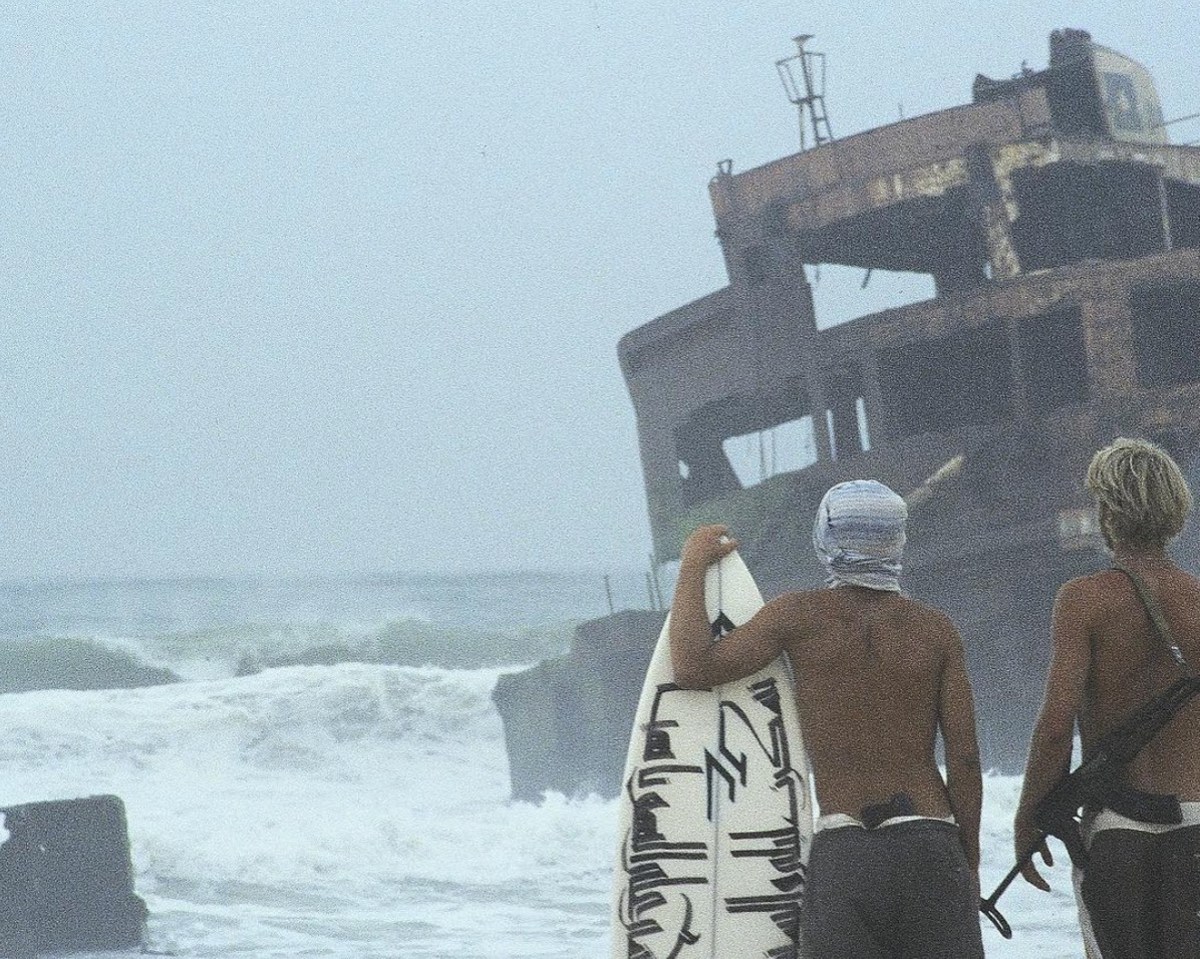
Just before noon we hit our first hinterland checkpoint. Its soldiers lounge in the shade of a few scrubby brushes, the raggedy non-descript trees, the guard shack, and the shadow their black, white, and red Yemeni flag casts. An important superior with military shirt unbuttoned revealing a sparkling white wifebeater approaches and he and Major Ghamdan carry on a lengthy, serious conversation with much gesticulating and head shaking.
Cole leans forward, trying to pick it up, and I ask, “What are they talking about?”
“Pirates,” he answers.
We all get out and the superior explains to us that pirates had come ashore at the nearest village and are busy sacking the town. There is absolutely no way he can let us though. We try all the tricks we had learned, absolving him of responsibility, promising that we won’t blame the government for our possible demise, demand that surf history needed this moment, before retreating to the patchy shade of another nearby nondescript scraggly tree in order to reassess our options.
While waiting, throwing pebbles at a plastic bag crucified on a bush, a truck comes rushing up in a cloud of dust. It is the first car we’d seen in the past fifteen hours, at least. As it nears the checkpoint then stops, I can see clearly that it is being piloted by two United States Special Forces operatives. Regardless of these being early days in the Global War on Terror, their uniform is already iconic: tight green T-shirts, bulging biceps, overgrown beards, dusty baseball caps flipped backward, wraparound sunglasses, and dirty black-and-white checked keffiyehs acting as fashionable neck warmers in the thousand-degree heat.
I watch them argue vigorously with the same commandant who told us about the pirates, but they too are rebuffed and retreat a little farther back than we did, staying in their car with the air-conditioning pumping. I don’t know if they see us since their wraparound sunglasses really do the trick, but I wonder what they think. I’m basically naked at this point, only wearing an increasingly worn pair of Op trunks and a pair of Spy sunglasses.
“I bet they wish they had Spy sunglasses,” I tell Josh. “It would be very on brand. Aren’t you happy we have them rather than too much money?”
He doesn’t answer.
After thirty minutes of rock throwing and arguing the proper numbers on Anastacia, a particularly difficult one to nail down seeing as she was never big in America but was in Bolivia and evidently Lebanon, the commandant ambles over casually, buttoning up his military shirt, and tells us we can head through. We load up without asking questions, thank him profusely, and creep past a bunched-up spike strip pulled off to the side.
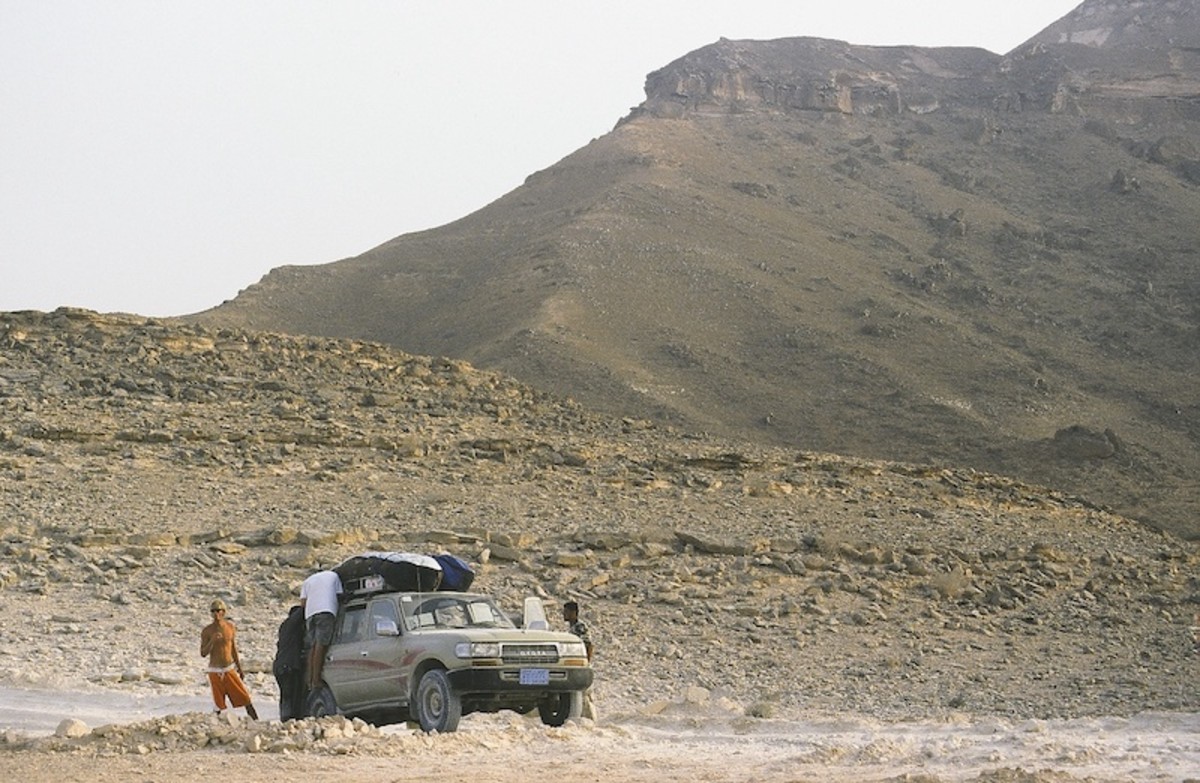
The Special Forces truck comes roaring up hot and we can see the commandant step in their way, arms raised, as they slide to a halt. We watch them arguing maniacally through the back window as our Landcruiser climbs up and over the next hill, arms swinging, heads thrown back then thrown forward, and it’s the last we ever see them, even hearing weeks later that they had been frustrated at every turn and left the country without achieving any sort of goal.
Special Forces were, more and more, becoming the sharp end of the Global War on Terror. Their abilities to move stealthily in and out of tricky situations combined with a Chuck Norris–meets-MacGyver skillset made them an easy sell to both purse-string-holding politicians and the general American public, and while their value is undeniable, there is something about watching them operate outside the wire that made me question our supposed tactical advantage.
That afternoon we eat our chicken lunch in the freshly sacked town, bullet holes still smoking in the whitewashed walls. The proprietor shrugs and tells us the pirate sacks happen so often that nobody cares. They generally go after other smugglers or insurgents trying to snag televisions, golf carts, and pallets of Chocodiles and Twinkies headed illegally across the Empty Quarter into Saudi Arabia. No big deal.
We find an epic left breaking off a shipwrecked tanker later in the evening that we name “Tetanuses” because the takeoff backwashes into a gaping black hole ringed with rusty, jagged, menacing metal.
from Men's Journal https://ift.tt/2FR70xG
via IFTTT

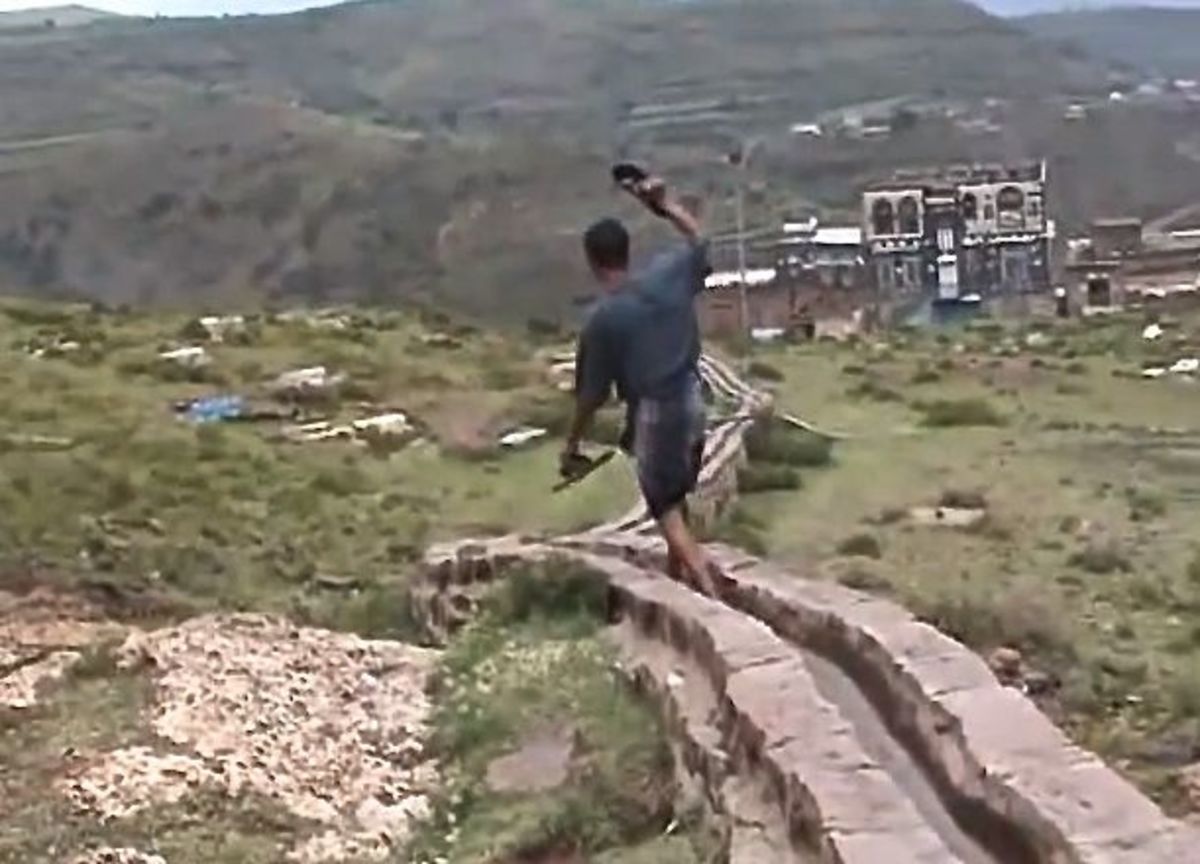









0 comments:
Post a Comment